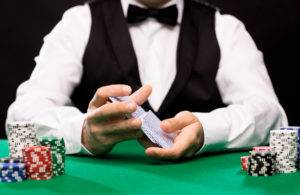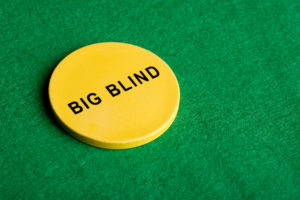The basic rules of Texas Hold’em poker

Are you intrigued by all the recent worldwide interest in poker? Well, first, you’d better learn how to play! You can easily learn the rules of poker in one day, but most players agree that it takes a lifetime to develop the skills and knowledge to become a poker master. Poker is a strategic game and there are several variations to play in both live venues and online sites. At Replay Poker, we offer variants of the traditional Texas Hold’em game format, which will be the primary focus of the information presented in this series.
“What cards do I need to win?” may be the first question you ask. It’s important to understand the ranking of hands that are declared winners and awarded the pot. You can view our article on hand rankings right here.
The Lingo
Poker players use a language that is unique to the game. While there are thousands of terms used, be sure to check out our Glossary of terms (A-L and M-Z) in the Replay Help Center for commonly used poker lingo.
Goals
The long-term goal of playing poker is to make a profit in the game. In fact, the goal every hand is to observe and learn from your opponents, hone your skills and fine tune your strategy. The short-term goal of every poker player is to win the pot, and there are two scenarios where you will be declared the winner of the hand:
- You make and show the best hand at showdown.
- All other players fold.
The Dealer
A note about the Dealer – the actual dealer will always deal the cards and does not play in the game. However, the Dealer Button is used to designate each player’s turn at representing the Dealer’s position, which is usually the final seat to act at the table. (In the first round, the Big Blind is the last to act). The Dealer Button rotation begins with the first player to the left of the Dealer and rotates clockwise around the table throughout the game.

The Deal
Let’s begin with the basic rules and structure used in community games throughout the world. A standard 52-card (no Jokers or Wild Cards), four-suited (Spades, Hearts, Diamonds, Clubs) deck is used. No card suit ranks higher than any other suit in traditional poker. The cards are dealt one at a time to each player in a clockwise rotation. Typically, two to ten players take a seat at the table. Heads Up is the term used when only two players are active in the hand.
When all cards are dealt and betting closed, the player with the best hand made up of five cards is declared the winner. Players use their hole cards (usually two) and the five community cards to make their best hand.
The deal begins with the first player to the left of the dealer and continues until each player has received the correct number of cards (known as hole cards or pocket cards). A round of betting follows each time new community cards are dealt.
After the players have been dealt their hole cards and the first round of betting (pre-flop) has ended, the community cards are dealt face-up on the board. These cards can be used by all players to make their hand. Community cards are dealt face up in the following sequence:
- The second deal is the Flop; three cards are dealt face up on the board.
- The third deal is the Turn; one card is dealt face up on the board.
- The fourth deal is the River; one card is dealt face up on the board.
The Blinds
The blind is the minimum bet required to actively play a hand. For example, a player may be required to pay 2 chips as the blind into the pot before the cards are dealt. The amount of the blind may remain constant during a ring game but will increase periodically over the course a tournament.

Small Blind/Big Blind
After the pocket cards have been dealt, players begin the betting round(s). Two players – the two seated immediately to the left of the dealer – are designated as the Small Blind and Big Blind, respectively. These two players are required to place their bet BEFORE the deal begins. The Big Blind is required to post the full amount of the minimum blind, e.g., 2 chips. The Small Blind is required to post half the full amount of the minimum blind, e.g., 1 chip.
Three of your most powerful weapons to use to outplay your opponents are your starting hand (hole cards), chip stack and position. Be sure to check back, as we’ll be releasing articles on the following topics:
- Starting hands
- Position
- Chip stack

Share This